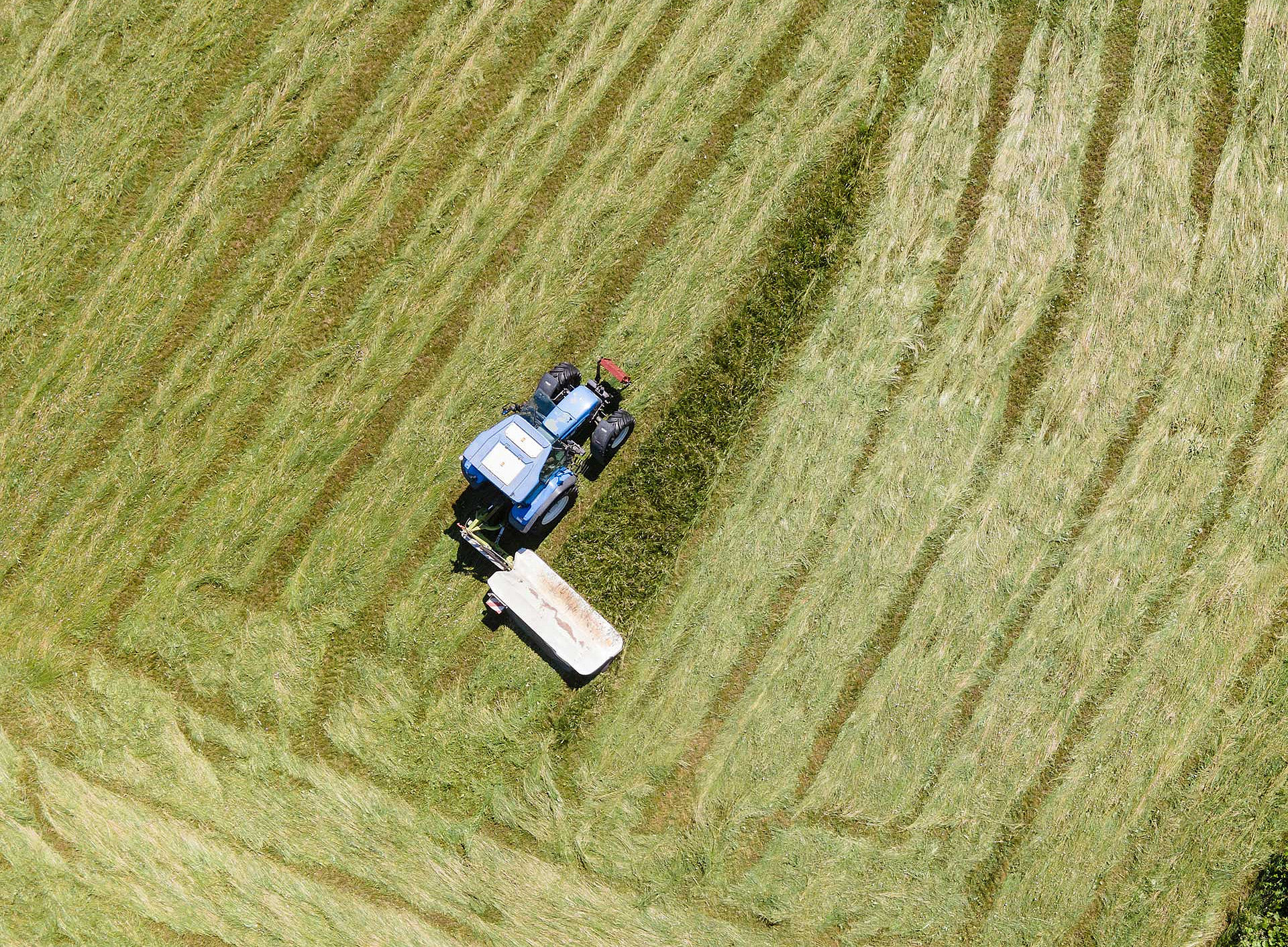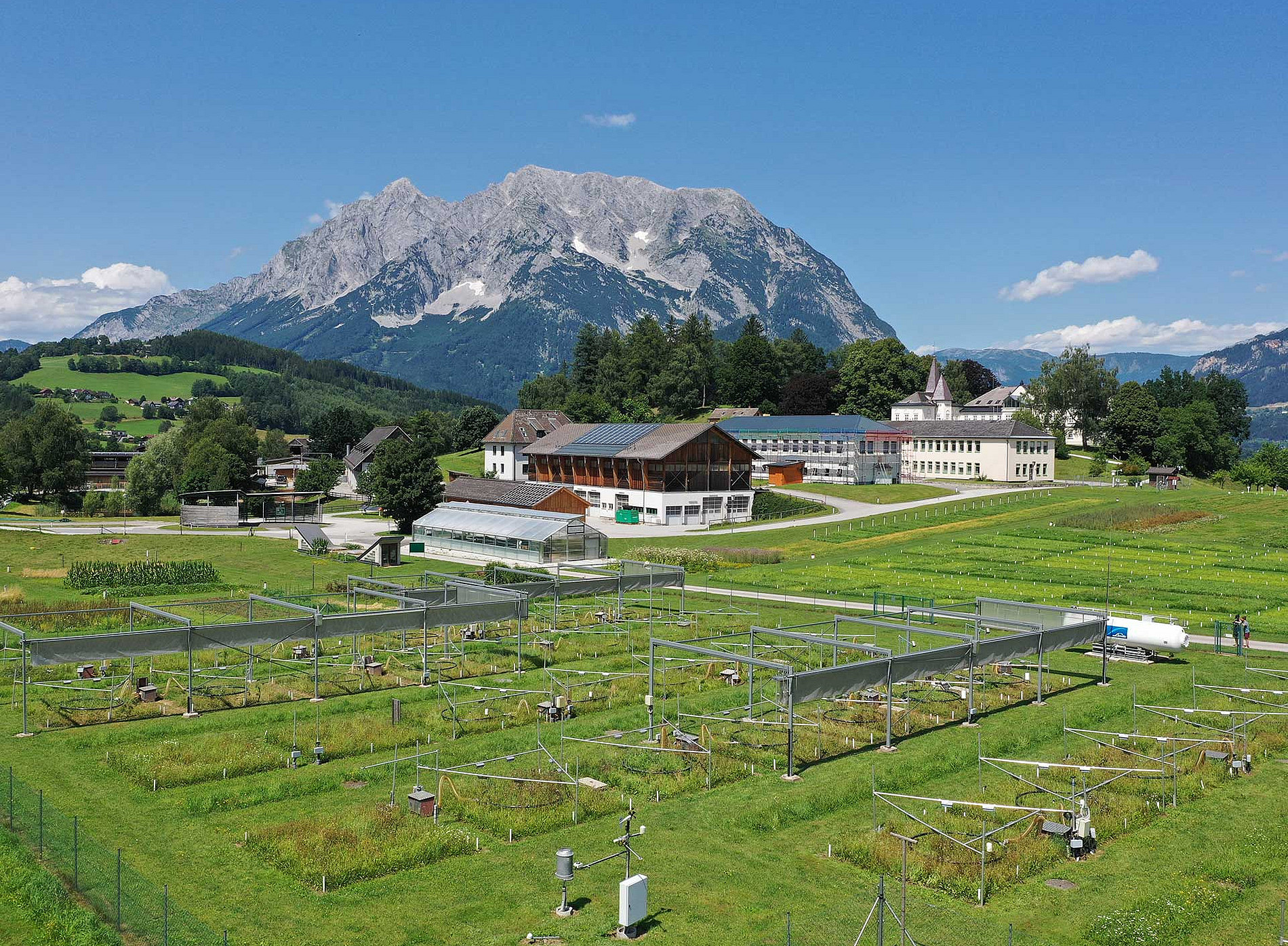Graslandschaften bedecken fast 40 Prozent der Erdoberfläche und spielen eine wichtige Rolle im globalen Wasserkreislauf. Wie sich Klimaveränderungen auf diese lebenswichtigen Ökosysteme auswirken, veranschaulicht eine neue Studie unter der Leitung von Jesse Radolinski und Michael Bahn vom Institut für Ökologie der Universität Innsbruck. Das auch am Institut für Erdwissenschaften der Universität Graz durchgeführte und von der Österreichischen Akademie der Wissenschaften geförderte Projekt liefert nun neue Erkenntnisse.
„Der Erdboden ist von feinen Poren durchzogen, enthält aber auch größere Hohlräume, durch die Wasser rasch versickern kann. Durch wiederkehrende und längere Dürreperioden verändert sich der Porenraum. Fällt dann endlich Regen wird die Durchmischung im Boden stark eingeschränkt und der Wasserhaushalt gestört“, schildert Steffen Birk, Hydrogeologe an der Uni Graz und Co-Autor der Studie. Dieses Phänomen kann folglich das bewirtschaftete Grünland, wie es auch im alpinen Raum häufig vorzufinden ist und als Futterflächen für die Landwirtschaft dient, beeinflussen. Denn die Klimaveränderungen verändern auch die Eigenschaften des Bodens.
An der landwirtschaftlichen Forschungsanstalt in Raumberg-Gumpenstein im Ennstal wurden 54 Versuchsparzellen mit Heizstrahlern und CO₂-Abgabe sowie automatisierten Dächern, die den Regen abschirmen können, eingerichtet. Damit konnten realistische Klimaszenarien nachgestellt und die Interaktionen zwischen Bodenwasser und Pflanzen detailliert untersucht werden.
Für längerfristige Entwicklungen haben die Forscher am Institut für Erdwissenschaften der Uni Graz Computersimulationen durchgeführt. Steffen Birk: „Wir haben eine Kombination aus Dürre, höheren Temperaturen und höherem CO2-Gehalt der Luft angenommen und am Computer simuliert, wie sich der Wasserfluss im Boden verändert.“ Für ihre Berechnungen sind die Wissenschaftler:innen von einer jährlichen mehrwöchigen Trockenperiode im Sommer ausgegangen. „Schon nach drei Dürreperioden, also drei Jahren zeigten sich die Auswirkungen“, fasst Uni-Graz-Doktorand Matevz Vremec, ebenfalls Co-Autor der Studie, zusammen.

